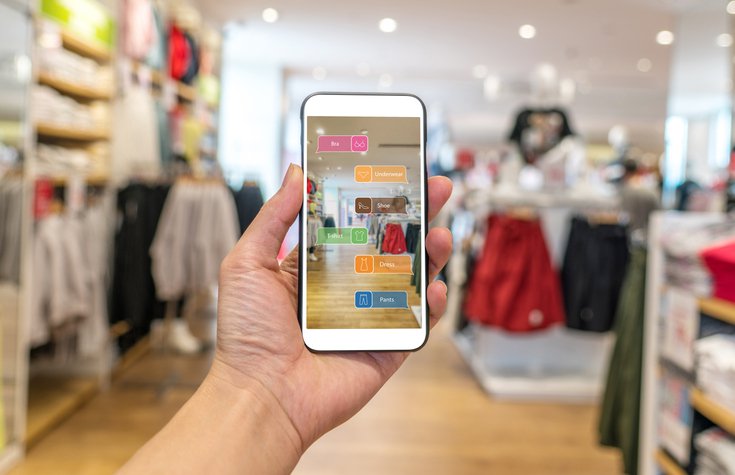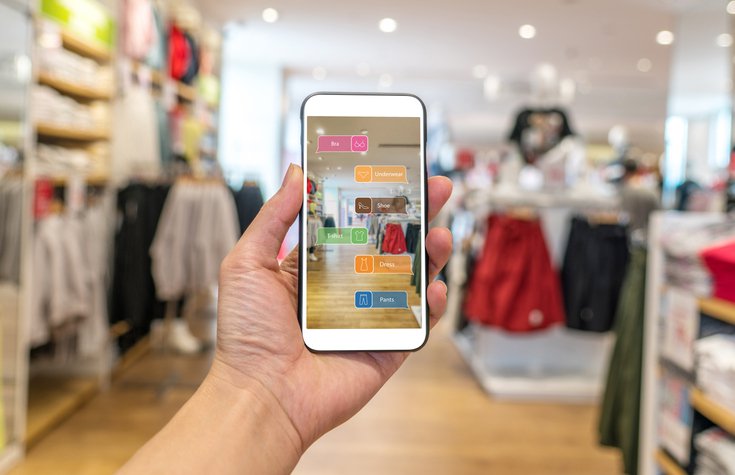
Four homegrown startups in retail technologies shared how they use artificial intelligence (AI), augmented reality (AR) and virtual reality (VR) to bring innovations to retailers and reshape customer experience at the StartmeupHK Festival organized by Invest Hong Kong.
AI-enabled popup kiosks
PopSquare is a popup store platform in Hong Kong for shops and designers. The platform leverages computer vision and AI to analyze customer behaviors and store performance.
According to PopSquare, its popup kiosks are rented out to shops and designers to showcase their products. The key technology that is used at a popup kiosk is computer vision, which includes wide-angle high-definition cameras and video analytics tools for people profiling, user behavior, and product pickup analysis. With the help of live chat, customers can interact with products designers in real time.
“By using computer vision, we can analyze customer behaviors and shop performance by customer traffic and customer engagement time,” says Sara Wan, business development director at PopSquare. All the traffic and customer demographic information will be saved in a data report for analysis.
Other technologies being used include an IoT LED for sensor-controlled lighting, a configurable pegboard for displaying products, a LED display for showing ad banners, a touchscreen, a directional speaker system; and 4G and Wi-Fi connection.
AR & VR-based experiences
Awethentic Studio is an AR and VR agency that produces digital content for luxury and premium brands. The startup creates immersive experiences between brands and customers through different digital platforms such as smart mirrors, LED screens, and mobile apps.
“We help brands create more exciting customer journey throughout their retail spaces by creating content channels that can be ported to multiple platforms,” says Sean Lee-Davies, founder and CEO at Awethentic Studio.
One of the new digital platforms is an avatar experience platform, according to Davies. He says that the avatar platform provides an offline to online conversion zone, an ecommerce zone, and also a great way of getting more brand engagement.
A 3D avatar scanner is used to scan a customer to create a personalized avatar. The customer can port his avatar onto his mobile phone and share the avatar in emoji mode in social media.
The avatar experience can also be used in the fashion industry. An avatar virtual wardrobe can be deployed on ecommerce channels. Avatar models are used to try clothes in different colors and sizes. Retailers can get instant feedback from consumers.
Digitally interactive in-store experiences
SnapPop aims to transform the physical world such as retail spaces or merchandise into a digitally interactive world.
Computer vision, beacon, and GPS technologies are deployed on SnapPop’s SaaS platform. “We use computer vision to do image recognition and tracking, beacons for indoor positioning, and GPS for outdoor positioning,” says Leo Lau, co-founder of SnapPop. “We built 30 different interactions that are ready to go.”
In-store shopping experience can be greatly enhanced. Regarding retails spaces, Lau says his company helps transform shopping malls into AR gaming arcades to increase footfall traffic.
On the merchandise front, products marketers are able to interact with customers more intuitively by adding multimedia content to packaging or printed materials like posters or catalog, creating an interactive sales pitch. When customers scan a product packaging or printed materials with a mobile phone, they can learn more about the products or get notified of promotions such as discounts or lucky draws.
Automated consumer research & analytics
Zectr uses an AI system to conduct research, analyze data, and gives business recommendations to customers.
“Not only do you get a recommendation about what product to launch, at what price, targeting who and how you should position yourself in the market, we also do market segmentation to identify untapped market potential,” says Simon Lau, co-founder of Zectr.
Lau adds that the AI system automates consumer research execution and conduct advanced analytics to generate actual recommended actions in a report, helping customers to find out what products consumers want and which ones will actually sell.

